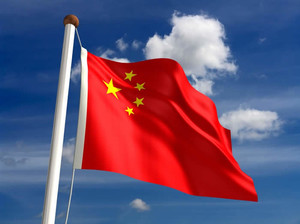The market for copy biologicals in China has significantly grown over the past decade. By early 2022, over 60 pharmaceutical companies were involved in the development of copy biological products [1].
Infliximab for injection stands out as the fastest-progressing biosimilar, receiving approval on 30 June 2023, making it the first imported antibody-based biosimilar to be approved in China. This biosimilar uses the same SP2/0 host cell line as its reference product.
Additionally, Alvogen and Eli Lilly have been active in the Chinese market with biosimilars in the peptide category. Eli Lilly initially faced a setback in China when its 2020 application for insulin glargine biosimilar was rejected due to missing a comparative quality study. However, it was approved in September 2023 following a resubmission in 2022.
As of September 2023, major international pharmaceutical companies in biosimilar development, including Amgen, Celltrion, Mylan, and Samsung Bioepis, have submitted 17 applications for biosimilars in China. These applications largely target antibody-based biosimilars such as adalimumab, bevacizumab, rituximab, trastuzumab.
Below are the ongoing and approved foreign biosimilar applications in China from 2018 to the present, highlighting the expanding presence of international biosimilar in the Chinese market.
1. Adalimumab (TNF-α) – Amgen: submitted on 31 January 2019, early phase
2. Aflibercept (VEGF) – AffaMed Therapeutics HK: submitted on 30 January 2021, early phase
3. Bevacizumab (VEGF)
- Biocad – submitted on 2 July 2022, early phase
- Samsung Bioepis – submitted on 17 September 2020, early phase
- Amgen – submitted on 14 April 2020, in pivotal clinical phase
4. Eculizumab (IL-12) – Samsung Bioepis: submitted on 15 May 2019, pivotal clinical phase
5. Infliximab (TNF-α) – Celltrion: approved on 30 June 2023
6. Insulin glargine (INSR) – Eli Lilly Nederland/France/Suzhou: approved in September 2023
7. Ranibizumab (VEGF) – Samsung Bioepis; Shanghai AffaMed Therapeutics: submitted on 2 September 2022, early phase
8. Rituximab (CD20)
- Celltrion – submitted on 20 December 2018, early phase
- Dr Reddy's Laboratories – submitted on 15 April 2019, pivotal clinical phase
9. Teriparatide (PTH-1R) – Alvogen; Beijing Kangchen Biological Technology: submitted on 2 December 2021, early phase
10. Trastuzumab (HER2)
- Samsung Bioepis – submitted on 18 February 2020, pivotal clinical phase
- Mylan – submitted on 14 October 2019, early phase
11. Ustekinumab (IL-12) – Alvotech & CCHT Biopharmaceutical: submitted on 26 August 2021, early phase
The targets for these biosimilar applications include various critical proteins and receptors, such as vascular endothelial growth factor (VEGF), CD20, human epidermal growth factor receptor (HER2), tumour necrosis factor-alpha (TNF-α), PTH-1R (parathyroid hormone 1 receptor), IL-12, C5, and insulin, which are relevant in treating conditions like cancer, autoimmune diseases, and diabetes.
On 19 December 2018, Sandoz entered into an agreement with China-based Gan & Lee to commercialize its biosimilar insulins used in patients with type 1 and type 2 diabetes [2]. And in February 2018, China aligned its regulations with international standards by becoming in 2017 a full member of the International Council for Harmonisation of Technical Requirements for Pharmaceuticals for Human Use (ICH) [3].
These developments underscore the dynamic nature of the biosimilar market in China, highlighting the regulatory progress [4] and the strategic moves of international pharmaceutical companies [2] to secure their presence in this rapidly growing market.
Editor’s comment
European Medicines Agency regulatory requirements ensure the same high standards of quality, safety and efficacy for biosimilars as for originator biologicals, and also include a rigorous comparability exercise with the reference product but they are not universally accepted by regulatory bodies outside of the European Union (EU). It should be noted that copy biologicals approved in China might not have been authorized if they had been subjected to the strict regulatory processes required for approval of biosimilars in the EU.
Related articles
China approves Simcare’s cetuximab beta Enlituo
Amgen and Simcere to collaborate on copy biologicals in China
References
1. GaBI Online - Generics and Biosimilars Initiative. Pharmaceutical companies in China manufacturing copy biologicals [www.gabionline.net]. Mol, Belgium: Pro Pharma Communications International; [cited 2024 Sep 18]. Available from: www.gabionline.net/reports/pharmaceutical-companies-in-china-manufacturing-copy-biologicals
2. GaBI Online - Generics and Biosimilars Initiative. Sandoz makes biological deal in China [www.gabionline.net]. Mol, Belgium: Pro Pharma Communications International; [cited 2024 Sep 18]. Available from: www.gabionline.net/pharma-news/Sandoz-makes-biological-deal-in-China
3. GaBI Online - Generics and Biosimilars Initiative. China adopts ICH guidelines and collaborates with UK [www.gabionline.net]. Mol, Belgium: Pro Pharma Communications International; [cited 2024 Sep 18]. Available from: www.gabionline.net/guidelines/China-adopts-ICH-guidelines-and-collaborates-with-UK
4. GaBI Online - Generics and Biosimilars Initiative. Improved regulation favouring copy biologicals in China [www.gabionline.net]. Mol, Belgium: Pro Pharma Communications International; [cited 2024 Sep 18]. Available from: www.gabionline.net/reports/Improved-regulation-favouring-copy-biologicals-in-China
Permission granted to reproduce for personal and non-commercial use only. All other reproduction, copy or reprinting of all or part of any ‘Content’ found on this website is strictly prohibited without the prior consent of the publisher. Contact the publisher to obtain permission before redistributing.
Copyright – Unless otherwise stated all contents of this website are © 2024 Pro Pharma Communications International. All Rights Reserved.








 0
0











Post your comment